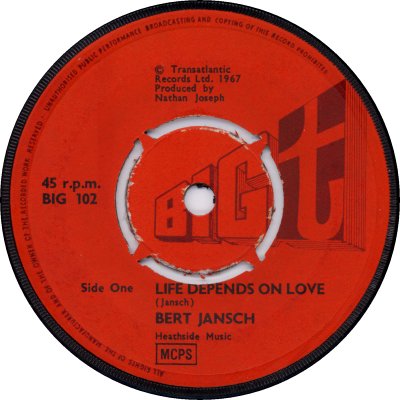
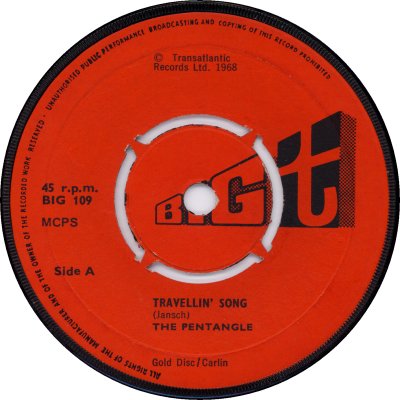
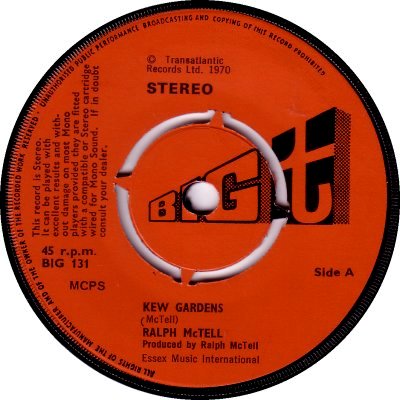
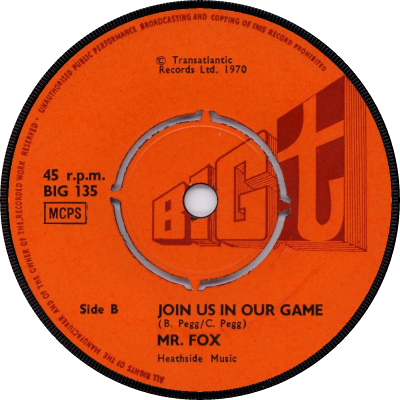
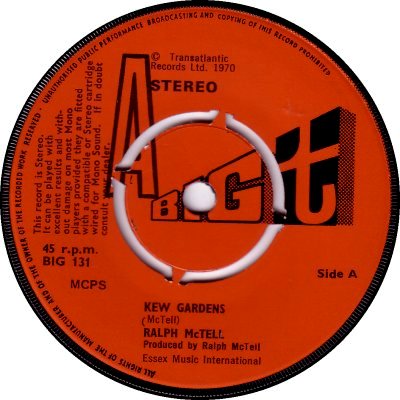
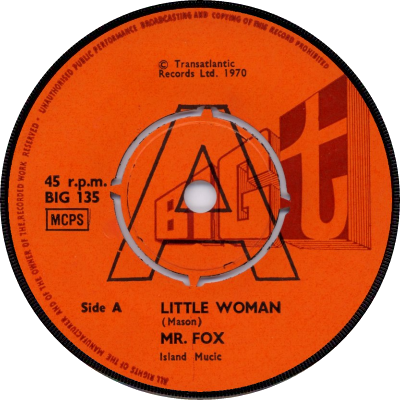
Transatlantic's singles label from 1967 into the early '70s. Big T's imminent arrival was announced in 'Record Retailer' of the 16th of March 1967. According to the article the new label was due to be launched at the end of the month and was intended for 'Pop' product, with 'non-Pop' singles continuing to be released on Transatlantic (q.v.). It caused a stir with its first record, the Purple Gang's 'Granny Takes A Trip', which was banned by the BBC; after the dust from that excitement settled it nudged the charts with a couple of singles by Pentangle, 'Once I Had A Sweetheart' (BIG-124; 1969), and 'Light Flight' (BIG-128; 1969). There were several Soul singles on Big T, licensed from American companies such as Roulette; Rock was represented in the form of the likes of Stray and Unicorn, while eventually singles by 'Folk' artists such as Pentangle and Ralph McTell began to surface. Big T disappeared early in 1972, and was replaced by the Transatlantic label proper (q.v.), which offered the same sort of fare as Big T had latterly done.
Catalogue numbers of Big T singles were in the BIG-100s. The first seven singles had a large purple logo (1); from BIG-108 until BIG-132 the logo shrank in size and turned black (2). Stereo singles had a blurb added on the left-hand side, which necessitated a shift in the positions of some of the minor credits (3). An advert in 'Record Retailer' of the 15th of January 1969 gave the distributors of Transatlantic and Big T as Selecta, Lugton, Keith Prowse and H.R. Taylor in England and Wales; Clyde Factors and Record Enterprises in Scotland; and Irish Record Factors and Solomon & Peres in Ireland. Keith Prowse was dropped from the list of distributors in March 1970 ('RR', 12st March). Transatlantic moved to EMI for pressing and distribution from the 1st of September; 'RR' of the 29th of August, reporting the forthcoming move, gave the previous manufacturers as CBS, British Homophone and Industrial Commercial Plastics. The agreement with EMI lasted just under two years: Transatlantic had been busy developing its own distribution system, and 'Music Week' of the 1st of July 1972 was able to break the news that the company was in a position to distribute its own records in England and Wales. Clyde Factors would continue to cover Scotland, with Irish Record Factors and Solomon & Peres continuing to cover Ireland. By that time, however, the Big T label had been discontinued and Transatlantic had become an all-purpose label; the continuation of the story can be found on the Transatlantic page.
Manufacture of singles appears to have been by CBS rather than British Homophone or ICP, up to BIG-132; at least, the few copies that I have seen in the vinyl have been CBS products. From BIG-133 onwards the large purple logo made a comeback (4) and stereo singles no longer had the blurb on their labels. The alteration coincided with the change in manufacturer from CBS to EMI; the difference in the width of the dinking perforations can be seen in the scans, the EMI ones being narrower. Promo copies were marked with a hollow 'A'; early singles with the purple logo had a wide central one, while black-logoed singles had a narrow one at ten o'clock (5). The wider central 'A' returned with the purple logo at the start of the EMI period (6).
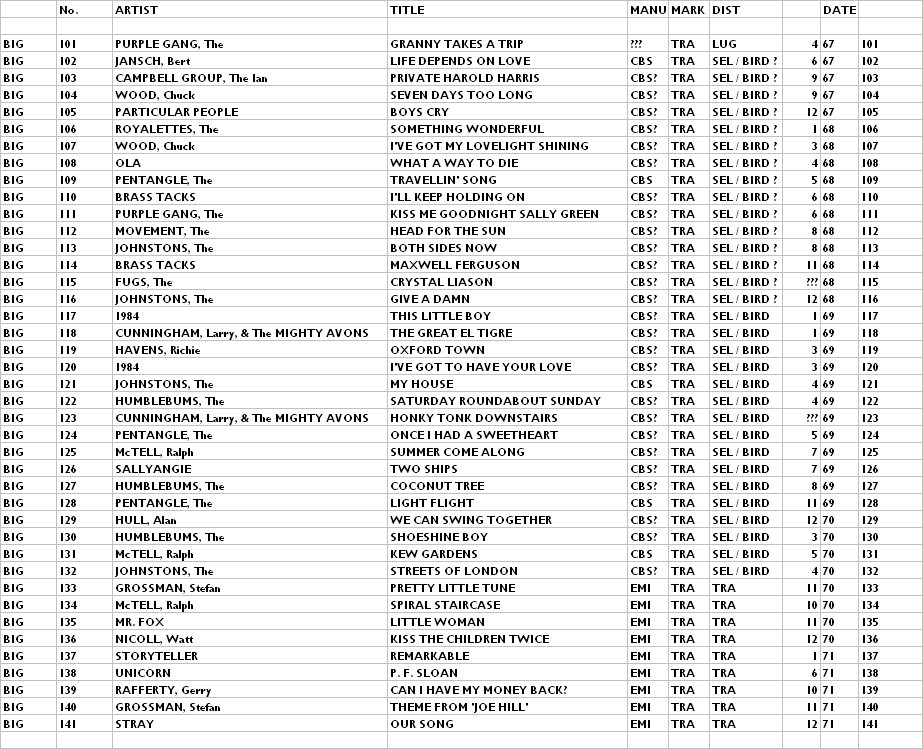


Copyright 2006 Robert Lyons.

